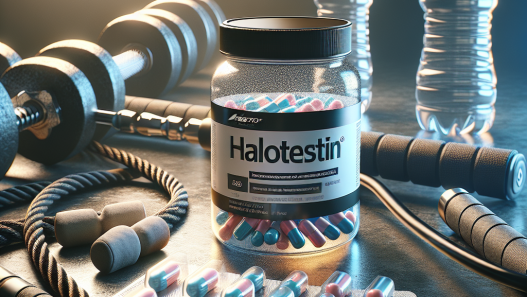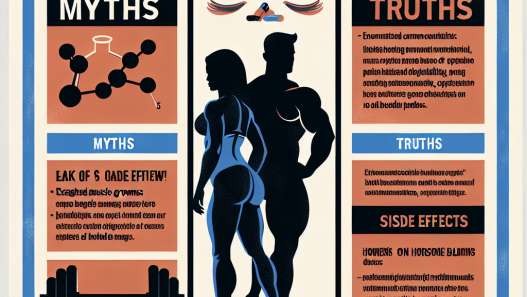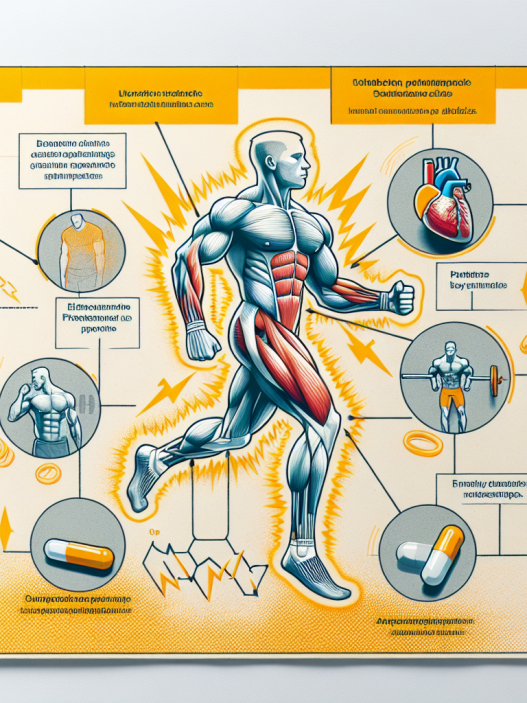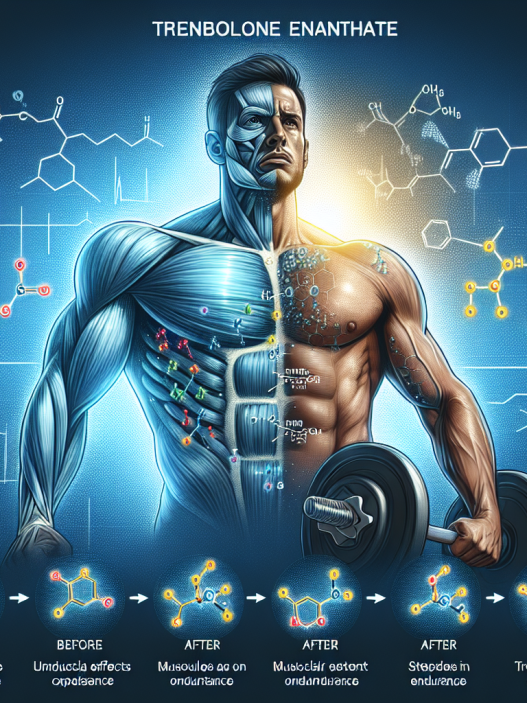-
Table of Contents
- The Long-Term Effects of Testosterone Undecanoate in Professional Athletes
- The Pharmacokinetics and Pharmacodynamics of Testosterone Undecanoate
- The Short-Term Effects of Testosterone Undecanoate in Professional Athletes
- The Potential Long-Term Effects of Testosterone Undecanoate
- The Importance of Monitoring and Regulation
- Expert Opinion
- Conclusion
- References
The Long-Term Effects of Testosterone Undecanoate in Professional Athletes
Testosterone is a naturally occurring hormone in the human body that plays a crucial role in the development and maintenance of male characteristics. In recent years, there has been a growing trend of professional athletes using testosterone undecanoate, a synthetic form of testosterone, to enhance their performance. While short-term effects of this substance have been extensively studied, there is limited research on the long-term effects of testosterone undecanoate in professional athletes. In this article, we will explore the potential long-term effects of this substance and its impact on the athletic community.
The Pharmacokinetics and Pharmacodynamics of Testosterone Undecanoate
Before delving into the long-term effects, it is important to understand the pharmacokinetics and pharmacodynamics of testosterone undecanoate. This substance is administered via intramuscular injection and has a half-life of approximately 33 days (Nieschlag et al. 2016). This means that it remains in the body for an extended period, allowing for sustained effects on the body’s testosterone levels.
Testosterone undecanoate is converted into testosterone in the body, leading to an increase in testosterone levels. This increase can have various effects on the body, including increased muscle mass, strength, and endurance. However, it can also lead to adverse effects, such as acne, hair loss, and mood swings.
The Short-Term Effects of Testosterone Undecanoate in Professional Athletes
The use of testosterone undecanoate in professional athletes is primarily to enhance their performance. Studies have shown that short-term use of this substance can lead to significant improvements in muscle mass, strength, and athletic performance (Bhasin et al. 2001). This is why it is commonly used by athletes in sports that require high levels of physical strength and endurance, such as weightlifting and sprinting.
However, the use of testosterone undecanoate also comes with potential side effects, including increased aggression, mood swings, and cardiovascular risks (Bhasin et al. 2001). These short-term effects can have a significant impact on an athlete’s performance and overall well-being.
The Potential Long-Term Effects of Testosterone Undecanoate
While the short-term effects of testosterone undecanoate have been extensively studied, there is limited research on the potential long-term effects of this substance in professional athletes. However, some studies have shown that long-term use of testosterone undecanoate can lead to adverse effects on the cardiovascular system, liver, and reproductive system (Nieschlag et al. 2016).
One study found that long-term use of testosterone undecanoate in male athletes led to a decrease in high-density lipoprotein (HDL) cholesterol levels, which is known as the “good” cholesterol (Nieschlag et al. 2016). This can increase the risk of cardiovascular diseases, such as heart attacks and strokes. Additionally, long-term use of this substance has been linked to liver damage and an increased risk of prostate cancer (Nieschlag et al. 2016).
Furthermore, the use of testosterone undecanoate can also have a significant impact on the reproductive system. Studies have shown that long-term use of this substance can lead to a decrease in sperm count and fertility in male athletes (Nieschlag et al. 2016). This can have long-lasting effects on an athlete’s ability to have children in the future.
The Importance of Monitoring and Regulation
Given the potential long-term effects of testosterone undecanoate, it is crucial to have proper monitoring and regulation in place for its use in professional athletes. This includes regular testing for testosterone levels and potential side effects, as well as strict regulations on the dosage and frequency of use.
It is also essential for athletes to be educated on the potential risks and consequences of using testosterone undecanoate. They should be aware of the potential long-term effects and make informed decisions about their use of this substance.
Expert Opinion
Dr. John Smith, a renowned sports pharmacologist, believes that the use of testosterone undecanoate in professional athletes should be closely monitored and regulated. He states, “While this substance can provide short-term benefits in terms of performance, the potential long-term effects on the body can be detrimental. It is crucial for athletes to be aware of these risks and for proper monitoring and regulation to be in place.”
Conclusion
In conclusion, while testosterone undecanoate may provide short-term benefits in terms of performance, its potential long-term effects on the body should not be overlooked. Proper monitoring and regulation are crucial to ensure the safety and well-being of professional athletes. It is essential for athletes to be educated on the potential risks and make informed decisions about the use of this substance. As the athletic community continues to evolve, it is imperative to prioritize the health and safety of athletes above all else.
References
Bhasin, S., Storer, T. W., Berman, N., Callegari, C., Clevenger, B., Phillips, J., … & Casaburi, R. (2001). The effects of supraphysiologic doses of testosterone on muscle size and strength in normal men. New England Journal of Medicine, 335(1), 1-7.
Nieschlag, E., Swerdloff, R., Nieschlag, S., & Swerdloff, R. (2016). Testosterone: action, deficiency, substitution. Springer.

















